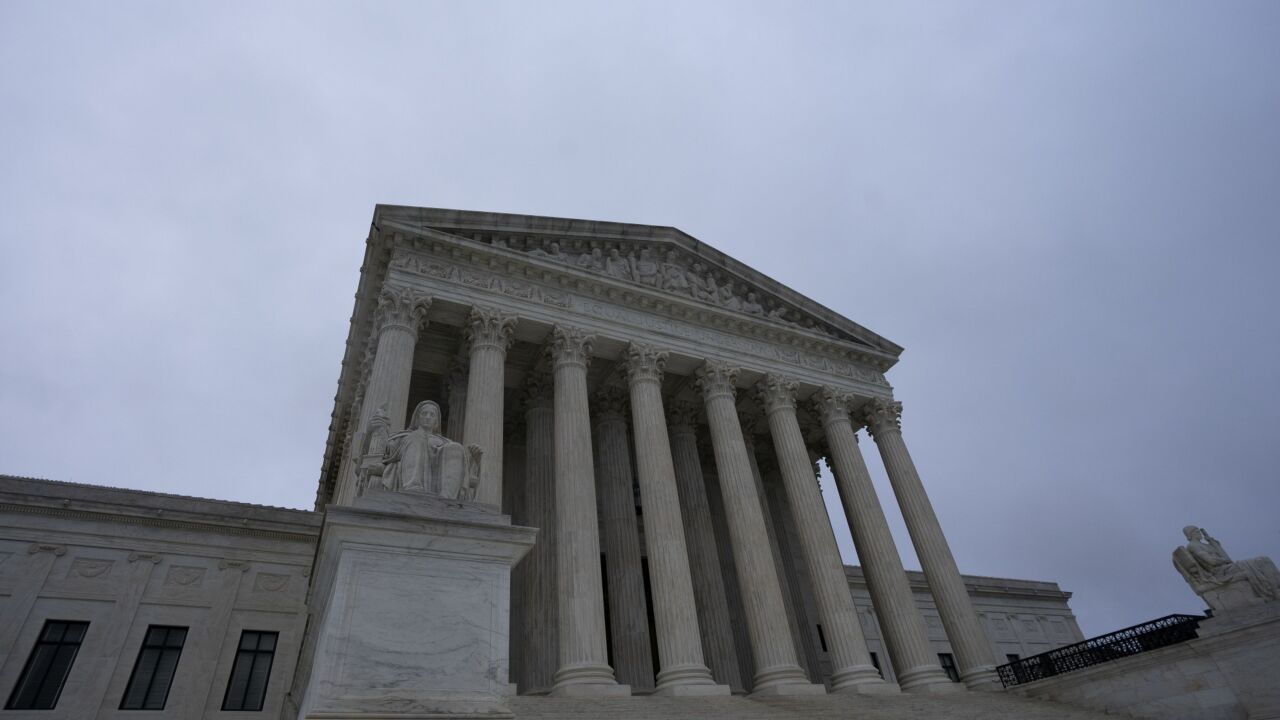-
Manhattan District Attorney Cyrus Vance could soon get his hands on President Donald Trump’s tax returns, but that doesn’t mean the public will see them.
July 9 -
The U.S. Supreme Court cleared a New York grand jury to get President Donald Trump’s financial records while blocking for now House subpoenas that might have led to their public release before the election.
July 9 -
The U.S. Supreme Court limited the power of the Securities and Exchange Commission to recoup illegal profits from wrongdoers, putting new curbs on one of the agency’s most potent legal weapons.
June 23 -
The U.S. Supreme Court refused to question a ruling that technology companies including Facebook Inc. and Google say will cost them billions of dollars in taxes by limiting deductions for stock payments to employees.
June 22 -
Democrats may be as far as ever from seeing President Donald Trump’s tax returns after a U.S. Supreme Court argument suggested a legal fight over House subpoenas could extend for months.
May 13 -
Key justices explored possible middle ground as the U.S. Supreme Court considered President Donald Trump’s bid to keep his financial records secret in a pair of cases that could have sweeping constitutional significance and affect the November election.
May 12 -
The U.S. Supreme Court is set to hear what could become the biggest cases involving Donald Trump as president, a pair of constitutional clashes that could insulate chief executives from investigations while in office and add an explosive new element to the 2020 election campaign.
May 11 -
The U.S. Supreme Court agreed to review a ruling that critics say would give the Treasury Department and Internal Revenue Service a sweeping shield from challenges to their regulations.
May 4 -
The U.S. Supreme Court asked for additional briefs in an upcoming clash over President Donald Trump’s financial records, telling the lawyers to address whether courts have the power to consider the lawsuits he filed to challenge House subpoenas.
April 28 -
SCOTUS is holding a set of special telephone sessions next month.
April 15 -
The coronavirus has caught a number of states off guard, threatening their revenue and impairing their ability to meet obligations that have grown as a result of the epidemic.
April 7 -
The decision means companies and subsidiaries will want to establish clear tax allocation agreements.
March 23 -
Sales tax rate changes declined slightly last year, but the trend of more new districts imposing taxes on online transactions continued in 2019.
March 9 -
The Supreme Court vacated and remanded Tuesday an appeals court decision that found under federal common law, a tax refund due from a joint tax return generally belongs to the company responsible for the losses that form the basis of the refund, rejecting a nearly half-century-old precedent.
February 25 -
The justices let stand an appeals ruling that precluded a tax refund to movie producers, deferring to an IRS regulation that ended the common-law mailbox rule for refund claims, even though Clarence Thomas reversed his position on an earlier case.
February 25 -
The court is set to rule whether a parent company or a subsidiary can claim the money.
February 13 -
The year 2019 was a continuation of the banner year of 2018 for major law and administrative changes in sales and use tax compliance, inspired and driven in large part by the Supreme Court’s decision in South Dakota v Wayfair.
January 16 Friedlich Law Group
Friedlich Law Group -
SCOTUS will hear arguments in March, and likely rule by the end of June.
December 13 -
A U.S. Supreme Court justice temporarily blocked subpoenas that would force Deutsche Bank AG and Capital One Financial Corp. to turn over years of President Donald Trump’s financial documents to two House committees.
December 9 -
The president wants the justices to decide whether he has to hand over records held by his accounting firm, Mazars.
December 5

















